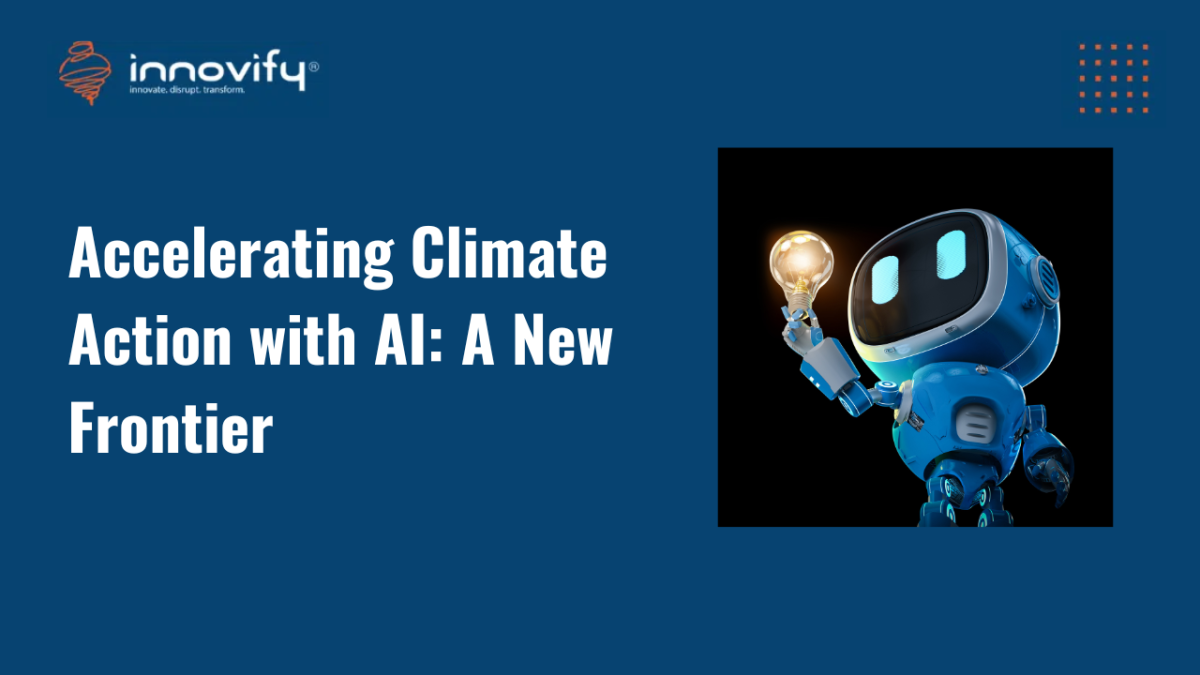AI/ML
Accelerating Climate Action with AI: A New Frontier
Introduction
The climate crisis is one of the most pressing challenges of our time. The impacts are already being felt globally, from rising sea levels and extreme weather events to biodiversity loss and food insecurity. To mitigate these effects, we need innovative solutions that can accelerate climate action. Artificial intelligence (AI) offers a promising avenue to achieve this goal.
How AI Can Contribute to Climate Change Mitigation
AI can be a powerful tool for addressing climate change in several ways:
- Enhanced Climate Modeling and Prediction: AI can analyze vast amounts of climate data to improve our understanding of climate patterns and predict future trends more accurately. This information can help policymakers make informed decisions about climate mitigation and adaptation strategies.
- Optimized Energy Efficiency: AI can be used to optimize energy consumption in various sectors, including transportation, manufacturing, and buildings. By identifying inefficiencies and suggesting improvements, AI can help reduce greenhouse gas emissions.
- Advanced Materials Development: AI can accelerate the development of new materials with enhanced properties, such as improved energy storage capacity or reduced carbon footprints. This can contribute to the transition to a low-carbon economy.
- Precision Agriculture: AI can be used to optimize agricultural practices, reducing the use of pesticides and fertilizers while increasing crop yields. This can help improve food security and reduce the environmental impact of agriculture.
- Carbon Capture and Storage: AI can help identify and optimize potential sites for carbon capture and storage (CCS) projects. CCS can be a valuable tool for reducing greenhouse gas emissions, especially in industries that are difficult to decarbonize.
Case Studies: AI in Action
Several organizations and companies are already leveraging AI to address climate change. For example:
- Google Earth Engine: This platform uses AI to analyze satellite imagery and provide insights into deforestation, land use change, and other environmental factors.
- Tesla: Tesla uses AI to optimize battery performance and improve the efficiency of its electric vehicles.
- Microsoft: Microsoft is investing in AI research to develop tools for climate modeling, carbon accounting, and renewable energy optimization.
AI-Based Climate Tech Solutions
Leading climate tech company like Innovify are at the forefront of developing AI-powered solutions to address climate change. These solutions include:
- AI-driven energy optimization platforms that help businesses reduce their energy consumption and carbon footprint.
- AI-powered climate modeling tools that provide accurate predictions of future climate trends.
- AI-enabled carbon emissions monitoring and reporting systems that help organizations track and reduce their greenhouse gas emissions.
How AI & Climate Tech Can Lead the Race to Net Zero?
AI and climate tech can play a crucial role in achieving net-zero emissions by:
- Accelerating the transition to renewable energy: AI can optimize the deployment and management of renewable energy sources, such as solar and wind power.
- Improving energy efficiency: AI can identify and address inefficiencies in energy consumption across various sectors, reducing the overall demand for energy.
- Promoting sustainable practices: AI can support sustainable practices in agriculture, transportation, and other industries, reducing their environmental impact.
- Enhancing climate resilience: AI can help communities adapt to the impacts of climate change by providing early warnings and developing climate-resilient infrastructure.
Harmony in Innovation: The synergy of Climate Tech and AI
The synergy between AI and climate tech is essential for tackling the climate crisis. AI can provide the intelligence needed to develop and deploy effective climate tech solutions, while climate tech can apply AI to address real-world climate challenges. By working together, AI and climate tech can drive innovation and accelerate climate action.
How AI Can Help Fight Climate Change
- AI applications for climate change: AI can be used in various applications, such as climate modeling, energy optimization, and carbon emissions reduction.
- AI and climate modeling accuracy: AI can improve the accuracy of climate models by analyzing vast amounts of data and identifying patterns.
- AI for renewable energy optimization: AI can optimize the deployment and management of renewable energy sources, such as solar and wind power.
- AI for sustainable agriculture: AI can help farmers optimize their practices to reduce their environmental impact and improve food security.
- AI and carbon emissions reduction: AI can identify and address inefficiencies in energy consumption, helping to reduce carbon emissions.
- AI for climate adaptation strategies: AI can help communities adapt to the impacts of climate change by providing early warnings and developing climate-resilient infrastructure.
- AI and climate justice: AI can be used to address climate injustice by ensuring that the benefits and burdens of climate action are distributed equitably.
- AI for climate policy development: AI can provide data-driven insights to inform climate policy decisions.
- AI and climate change education: AI can be used to develop educational tools and resources to raise awareness about climate change and its impacts.
- AI and climate change communication: AI can help communicate climate science and engage the public in climate action.
- AI and climate change research: AI can be used to conduct research on climate change and develop new solutions to address the crisis.
Conclusion
AI offers a powerful tool for addressing the climate crisis. By enhancing climate modeling, optimizing energy efficiency, developing new materials, improving agriculture, and supporting carbon capture and storage, AI can help mitigate the impacts of climate change and build a more sustainable future. As we continue to explore the possibilities of AI, it is essential to address the challenges and ensure that AI is used ethically and effectively to benefit both people and the planet.



